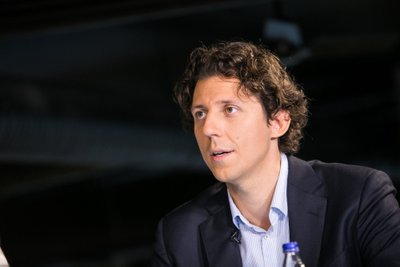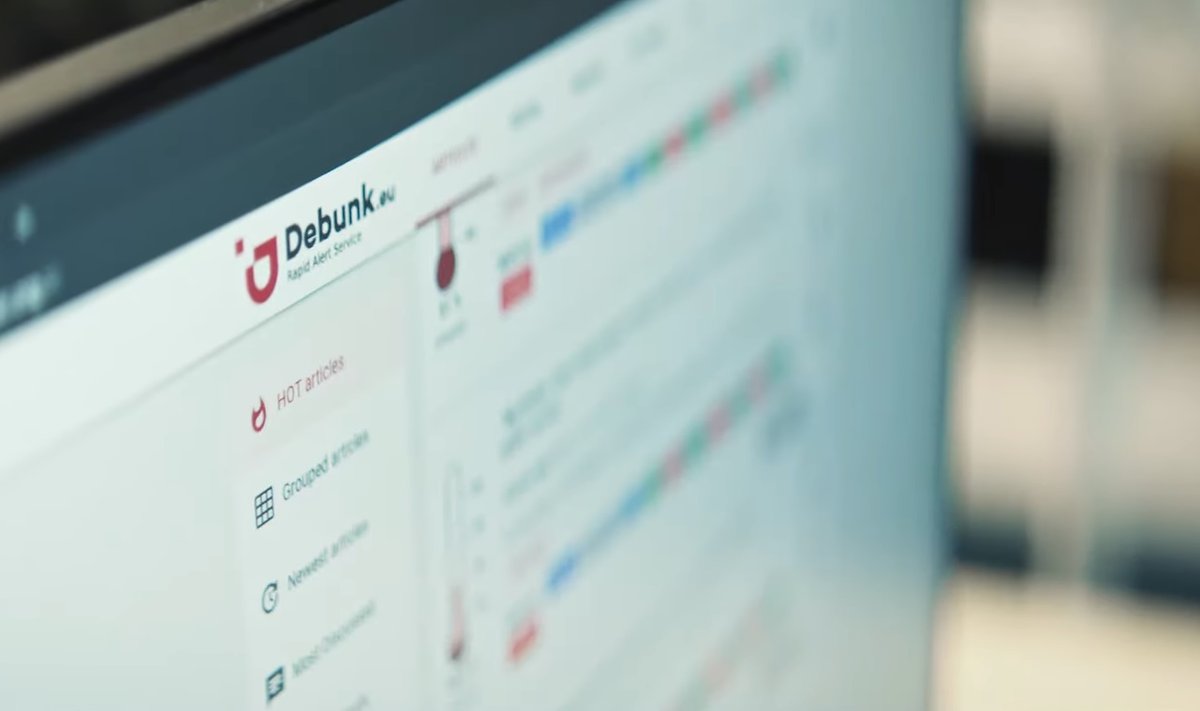Company 'Vikimedija' and the public body Debunk are defendants in the claim. Defendants contest the claim.
Financed by Google
In 2017, DNI Innovation Fund founded by Google accepted Delfi's application to develop a project that would create a search platform to tackle fake news and propaganda online. After the application was accepted Delfi asked Viktoras Dauksas (ex-CEO of Vikimedija) to become a consultant in the project. He was chosen to help with the proceedings of the project's implementation.
V. Dauksas was allocated as the manager of the project and the company 'Vikimedija' was hired to create the platform. As it was agreed, after the platform Debunk was created it was transferred to Delfi.
'Vikimedija' was paid more than 300 thousand euros for these services.
The platform that was initiated and lead by Delfi is created to fight disinformation. It also aims to provide access to Lithuania's media and public bodies that would create a network of stakeholders. The network can help to lower the impact of disinformation in society.

In the court, Delfi seeks to prove that 'Vikimedija' illegally transferred the software and the source code of the platform Debunk to the public body Debunk EU that is also lead by Viktoras Dauksas. The claim also states that 'Debunk EU' is using the intellectual property illegally in its own activities.
DNI Innovation Fund founded by Google was created to support innovative journalism and the transition of digital media in Europe. In the last five years, the fund allocated 150 million euros to 662 projects in 30 countries. In Lithuania, 6 projects were founded. Two of them were created and lead by Delfi.
Defendants deny accusations of illegal actions
„Vikimedija" claims that it does not do any illegal actions and says that the author's property rights belong to „Vikimedia". The company hopes to prove that by transferring the platform to Delfi it only gave the right to use the author's property rights to the platform in Lithuania, Latvia in Estonia for reaching the projec't goals while using the platform.

The defendant „Debunk" claims that it does not use the platform for its own work. According to the public body, the platform can only search and filter information and cannot be used for analysis or visualization of disinformation that is carried out by „Debunk". It is stated that all analytical reports were done using human resources and other tools. „Debunk" says that it does not have any aims to use the platform. The public body also claims that in 2020 it had hired some software companies to create an advanced tool for information analysis and it had cost the company more than 90 thousand euros.
Protecting intellectual property
Laura Baranauskienė, a lawyer at the Professional Law Partnership ADLEX, says that intellectual property is a legal concept that shows the result of mental work that has exclusive rights. As intellectual property provides, an owner has rights to different types of intangible property, such as music, literature, art, inventions, words, phrases, symbols or design.
According to the lawyer, due to globalization and the fast pase of information dissemination, the number of intellectual property's breaches is growing. Therefore, companies need to control its intellectual property, protect it and properly manage it.
As L. Baranauskienė states, every company needs to measure if all-important conditions of intellectual property are mentioned in contracts with employees, other companies, and in other contracts related to producing, distributing or licencing.
Moreover, to protect a brand or a design companies need to register them both nationally and internationally.
To protect the author's rights technical tools need to be used.
'Nowadays, it is also very important to make sure to protect properly commercial secrets that are also part of intellectual property. Technological processes lead to a higher level of industrial espionage and cyber hacking', she says.
According to her, infringement of intellectual property rights can lead to civil, penal or administrative sanctions.
